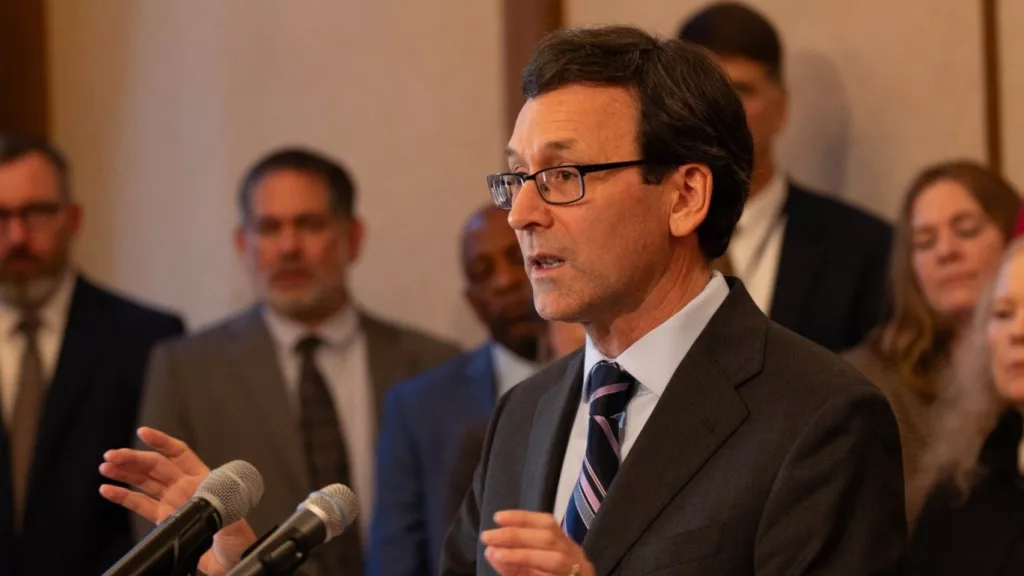OLYMPIA, WA – A bipartisan bill to keep communities in Washington state safe from sexually violent predators has been signed into law by Gov. Bob Ferguson.
House Bill 1457, sponsored by Rep. Dan Griffey, R-Allyn, and Rep. Travis Couture, R-Allyn, requires electronic monitoring of sexually violent predators granted conditional release. The bill mandates that courts impose electronic monitoring with specified tracking and notification capabilities before such individuals are released to a less restrictive alternative.
The bill was delivered to Ferguson on Tuesday and signed into law by him on Friday.
“We can’t stop these releases, but we can make them safer,” Griffey in a news release following the bill-signing. “These predators are dangerous. We need these tools for law enforcement to protect communities and so survivors can know when somehow who has harmed them is near and act accordingly to protect themselves.”
The technology tracks offenders 24 hours a day, seven days a week, immediately flags boundary violations, and alerts law enforcement and survivors who opt in.
“While electronic monitoring was common practice, this bill makes an important change,” Ferguson said right before signing the bill. “It makes it a requirement to track sexually violent predators in real-time. I’m so glad to see this passed into law. It’s very good for public safety, and I’m very pleased to see this passed in a bipartisan way.”
As previously reported by The Center Square, Griffey convened a work group between last year’s legislative session and the current session to find solutions to balance the constitutional rights of offenders who earn conditional release with community safety.
“How they are treated, where they stay, how they get out, all of those things were what we looked at,” he said at the time.
Griffey said HB 1457 resulted from a conversation he had with a public defender during a work group session.
“One of the defenders who took part told me there was something she could support, and that is advanced monitoring of sexually violent predators when they’re in LRAs or less restrictive alternative settings in communities,” he explained.
The bill mandates that the ankle monitor worn by an offender have geographical or isolation boundaries. These boundaries are tracked 24 hours a day and provide immediate notice of any violation to police and survivors.
“This is about protecting people and giving survivors peace of mind,” Couture noted. “But let’s be clear, this is one step. The entire SVP system is broken, from weak treatment programs to lack of oversight and zero accountability when predators are placed near kids. We are in this fight for the long haul.”
LRAs were created by lawmakers in 2021 for inmates who met conditions of release upon transitioning from the Special Commitment Center, a post-prison-sentence treatment institution for people designated as sexually violent predators, on McNeil Island, located in South Puget Sound, southwest of Tacoma
According to the community group Save Our Children, 24 LRAs operate around the state.
Griffey and Couture also introduced House Bill 1451 to bring transparency and control to the LRA housing process.
The bill never got a hearing.
It would have banned sexually violent predators from picking their own housing, required state ownership or oversight of LRA homes, prohibited placement within 500 feet of places children gather, and given local law enforcement a 60-day heads up before siting.
“That was a mistake,” Griffey said of the bill’s failure to get any traction. “We’re coming back with it in 2026, louder and stronger.”
